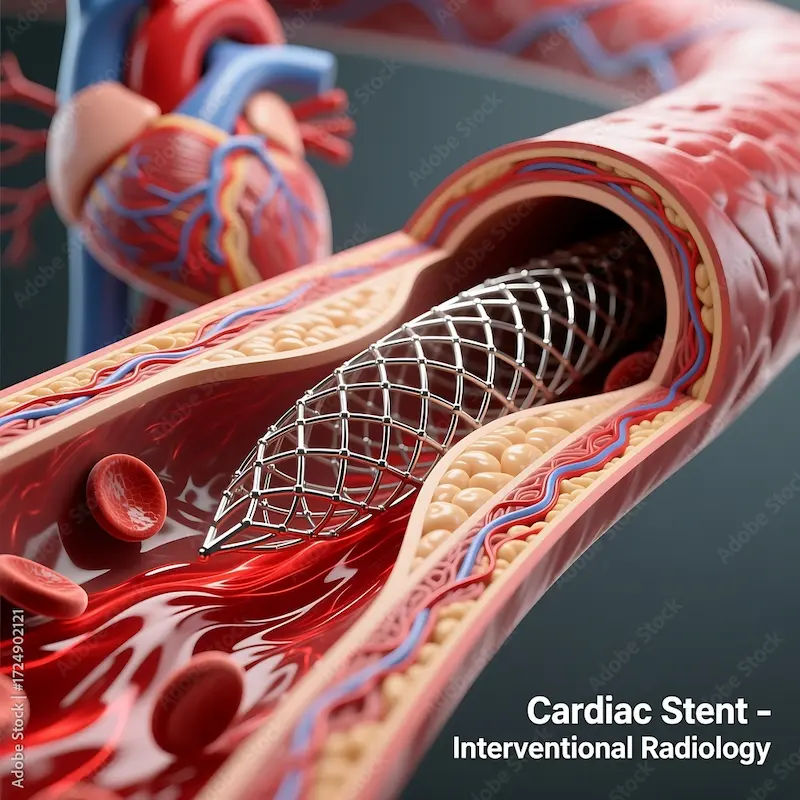- Male
- 33 Years
- 29/01/2025
I've been noticing that when I exercise at the gym, my heart starts beating really fast, almost like it's racing. It seems to take a bit longer than I'd like for everything to calm down afterward. I had some blood work done, and everything came back normal, including my cholesterol levels. My cardiologist has mentioned that everything seems okay, but I'm still experiencing these palpitations. What should I do about this?
Answered by 1 Apollo Doctors
Palpitations during exercise can be concerning, even if your cardiologist has given you the all-clear. One possible cause could be anxiety or stress. I recommend trying a beta-blocker medication such as Metoprolol (25-50mg) before exercising to help control your heart rate and reduce palpitations. Additionally, make sure to stay hydrated and avoid caffeine before working out. If the palpitations persist, it would be best to follow up with your cardiologist for further evaluation.
Dr. Mubarak Suggests...
Consult a Cardiologist
Answered 04/07/2025
0
0

More Cardiology Health Queries
View allI've been dealing with chest tightness and pain for a few months now and even after visiting a cardiologist who did an echo, ECG, blood test, and chest X-ray, they said my heart is fine but mentioned that my cholesterol is a little high and prescribed some cholesterol tablets. Can you suggest any home remedies that might help with the chest tightness and pain? I'm really curious about other ways to manage this.
Since your heart has been cleared by the cardiologist and you have been prescribed cholesterol tablets, you can try some home remedies to help relieve chest tightness and pain. 1. **Garlic**: Garlic is known to help lower cholesterol levels. You can include fresh garlic in your diet or take garlic supplements after consulting with your doctor. 2. **Omega-3 Fatty Acids**: Foods rich in omega-3 fatty acids like fatty fish (salmon, mackerel, sardines), flaxseeds, and walnuts can help reduce inflammation and improve heart health. 3. **Fiber-rich Foods**: Eating a diet high in fiber from fruits, vegetables, whole grains, and legumes can help lower cholesterol levels. 4. **Physical Activity**: Regular exercise, as recommended by your healthcare provider, can improve heart health and reduce chest tightness. 5. **Stress Management**: Practicing relaxation techniques such as deep breathing, meditation, or yoga can help reduce stress and chest tightness. 6. **Avoid Smoking and Limit Alcohol**: Smoking and excessive alcohol consumption can worsen chest pain and tightness. Please continue taking your prescribed cholesterol tablets as directed by your doctor and incorporate these home remedies for additional support. If your symptoms persist or worsen, please consult your healthcare provider for further evaluation.
Answered by 1 Apollo Doctors
My mom's blood pressure is reading 10090, and the doctor told her to take Losar 50. Should she take it in the morning or at night? A couple of months ago, she was on Amlodipine 5, but she'd stop when her blood pressure looked normal. Is that okay, or should she stick with the medication even if she feels better?
Unwanted 72 is an emergency contraceptive pill. _Frequency of Use_ 1. _Not recommended for frequent use_: Unwanted 72 is designed for emergency situations, not regular contraception. 2. _Maximum frequency_: Not more than 2-3 times in a year, as frequent use can lead to hormonal imbalances. _Twice in a Month_ 1. _Not recommended_: Taking Unwanted 72 twice in a month can disrupt your menstrual cycle and hormonal balance. 2. _Potential problems_: - Irregular periods - Heavy or prolonged bleeding - Mood swings - Breast tenderness - Nausea and vomiting - Headaches _Long-term Consequences_ 1. _Hormonal imbalance_: Frequent use can lead to hormonal imbalances, affecting fertility and menstrual regularity. 2. _Impact on fertility_: Repeated use may affect ovulation and fertility. _Alternative Contraception Methods_ 1. _Consult a gynecologist_: Discuss long-term contraception options, such as oral contraceptives, IUDs, or condoms. 2. _Regular contraception_: Switch to a regular contraception method to avoid frequent use of emergency contraceptive pills.
Answered by 1 Apollo Doctors
My dad is 80 years old and has a heart block. Should we consider open heart surgery, or could medication be a safe alternative?
Depends on the number of vessels blocked visit Cardiologist for appropriate management and follow his advice
Answered by 1 Apollo Doctors
Disclaimer: Answers on Apollo 247 are not intended to replace your doctor advice. Always seek help of a professional doctor in case of an medical emergency or ailment.

.webp)

_2.webp)

_0.webp)